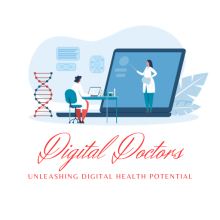Inspirational journeys
Follow the stories of academics and their research expeditions
Health Informatics Specialist: Managing Patient Data, EHR Systems, and Healthcare IT

As the world of healthcare evolves, so does the demand for
professionals who can bridge the gap between patient care and technological
innovation. Enter the Health Informatics Specialist—a role at the
forefront of managing patient data, electronic health record (EHR) systems, and
healthcare information technology (IT). This comprehensive guide delves into
the ins and outs of this career, including real-world success stories, key
challenges, and invaluable tips for aspiring professionals.
Who is a Health Informatics Specialist?
A Health Informatics Specialist is responsible for
ensuring healthcare organizations effectively manage and utilize patient data
and IT systems. These professionals work to:
- Develop,
implement, and optimize EHR systems.
- Ensure
data security and compliance with regulations like HIPAA.
- Analyze
healthcare data to improve clinical outcomes.
- Train
healthcare staff in using technology efficiently.
- Collaborate
with IT teams to troubleshoot and enhance system performance.
The role requires a blend of technical expertise, healthcare
knowledge, and analytical skills.
Real-World Case Studies and Success Stories
Case Study 1: Revolutionizing Patient Care Through Data
Integration
Organization: Cleveland Clinic
Challenge: Fragmented patient data across multiple systems hindered
efficient decision-making.
Solution: A Health Informatics Specialist led the integration of a
unified EHR platform, centralizing patient information.
Outcome:
- Reduced
redundant testing by 20%.
- Improved
patient outcomes through streamlined care coordination.
Case Study 2: Enhancing Rural Healthcare Access
Organization: Kaiser Permanente
Challenge: Rural clinics struggled with outdated record-keeping systems.
Solution: A Health Informatics team deployed cloud-based EHR systems,
accessible even in low-bandwidth areas.
Outcome:
- Increased
clinic efficiency by 30%.
- Enabled
better tracking of chronic disease management in rural populations.
Success Story: From IT to Healthcare Leader
Profile: John Carter, Certified Health Informatics
Specialist
John transitioned from an IT background to health informatics by completing a
graduate program in health informatics. Today, he manages EHR systems for a
leading hospital, contributing to the hospital’s designation as a "Top 100
Hospital for Digital Innovation."
Top Companies Actively Recruiting Health Informatics
Specialists
- Cerner
Corporation
- Website:
www.cerner.com
- Focus:
EHR systems, data analytics.
- Roles:
Informatics Analyst, System Developer.
- Epic
Systems
- Website:
www.epic.com
- Focus:
Comprehensive EHR solutions.
- Roles:
Implementation Consultant, Project Manager.
- UnitedHealth
Group
- Website:
www.unitedhealthgroup.com
- Focus:
Healthcare data analytics and telehealth solutions.
- Roles:
Health Informatics Specialist, Data Analyst.
- IBM
Watson Health
- Website:
www.ibm.com/watson/health
- Focus:
AI-driven healthcare solutions.
- Roles:
Clinical Informatics Manager, AI Specialist.
- Philips
Healthcare
- Website:
www.philips.com/healthcare
- Focus:
Digital health innovation.
- Roles:
Data Integration Specialist, Informatics Consultant.
Pitfalls in Health Informatics and How to Avoid Them
1. Overlooking User Training
- Problem:
Systems fail when users aren't adequately trained.
- Solution:
Develop comprehensive training programs and continuous learning modules.
2. Failing to Address Data Security
- Problem:
Breaches in patient data can lead to lawsuits and loss of trust.
- Solution:
Implement robust encryption and regular security audits.
3. Neglecting Interoperability
- Problem:
Systems that can't communicate with each other lead to inefficiencies.
- Solution:
Advocate for standards like HL7 and FHIR during system implementation.
Key Takeaways
- Stay
Updated: Health informatics is a dynamic field; staying current with
trends is critical.
- Certification
is Key: Credentials like CAHIMS (Certified Associate in Health
Information Management Systems) or CPHIMS (Certified Professional in
Health Information Management Systems) are invaluable.
- Networking
Matters: Join professional organizations like HIMSS (Healthcare
Information and Management Systems Society).
Curated List of Online Resources
- Healthcare
IT News
- Website:
www.healthcareitnews.com
- Offers
industry news and trends.
- HIMSS
(Healthcare Information and Management Systems Society)
- Website:
www.himss.org
- Provides
certifications, events, and educational resources.
- American
Medical Informatics Association (AMIA)
- Website:
www.amia.org
- Offers
research, certifications, and networking opportunities.
- Udemy
- Website:
www.udemy.com
- Courses:
Health Informatics Essentials, Data Analytics for Healthcare.
- Coursera
- Website:
www.coursera.org
- Programs:
Masters in Health Informatics from leading universities.
Invaluable Tips and Strategies for Aspiring Health
Informatics Specialists
1. Get Certified
Earning certifications like RHIA (Registered Health
Information Administrator) or pursuing advanced degrees in health
informatics enhances your employability.
2. Gain Experience
Volunteer or intern at hospitals to gain hands-on experience
with EHR systems.
3. Leverage Analytics Tools
Familiarize yourself with tools like Tableau, Power BI, or
Python for data analysis.
4. Build Interpersonal Skills
Collaboration with healthcare providers requires strong
communication and problem-solving skills.
5. Attend Industry Events
Participate in healthcare IT conferences to network and stay
informed about emerging trends.
Conclusion
The role of a Health Informatics Specialist is both
challenging and rewarding. As healthcare systems continue to evolve,
professionals in this field will play an essential role in optimizing patient
care through technology. With the right blend of skills, certifications, and
strategies, you can thrive in this high-demand career and contribute to
transforming the future of healthcare.
Embark on your journey today—because the future of
healthcare needs tech-savvy, data-driven innovators like you!
Tags:
Health Informatics Specialist EHR systems Healthcare IT careers Patient data management Health information management Top companies hiring Health Informatics Specialists Career tips for healthcare technology0 Comments
Categories
- Career Development and Opportunities in Digital Health 166
- White Papers 39
- IELTS For Medical Professional 35
- OET Exam Preparation 30
- Entrepreneurship and Innovation 26
- Healthcare Innovation 17





Leave a comment